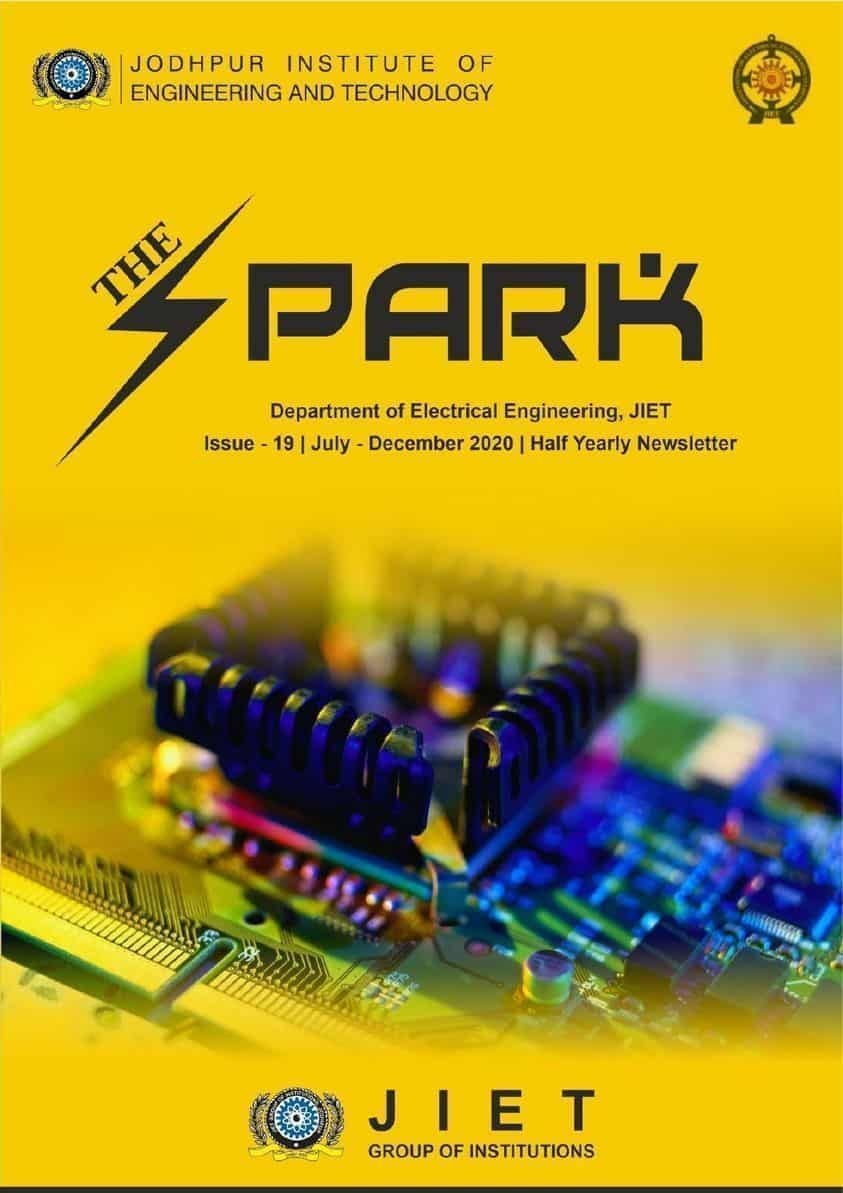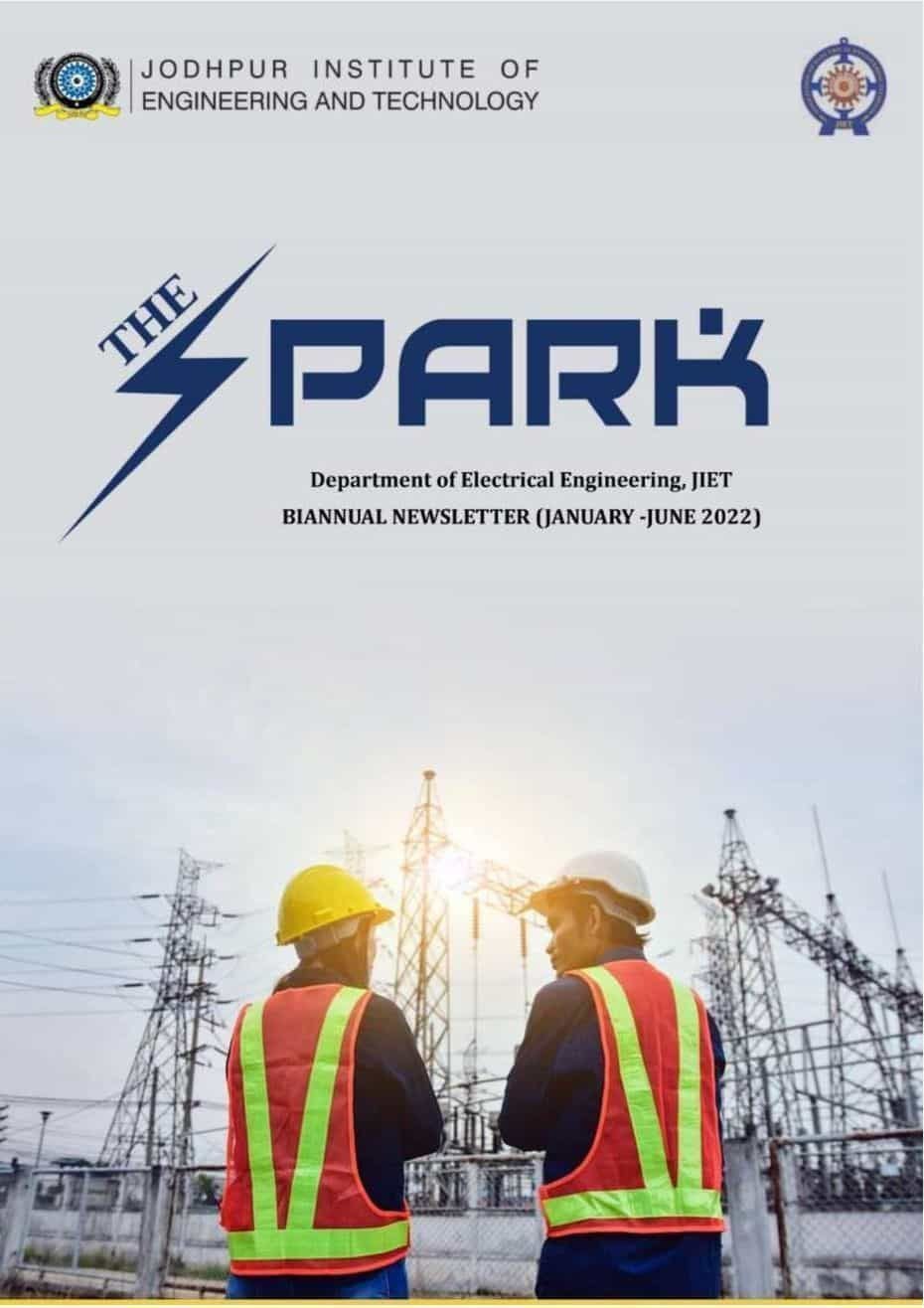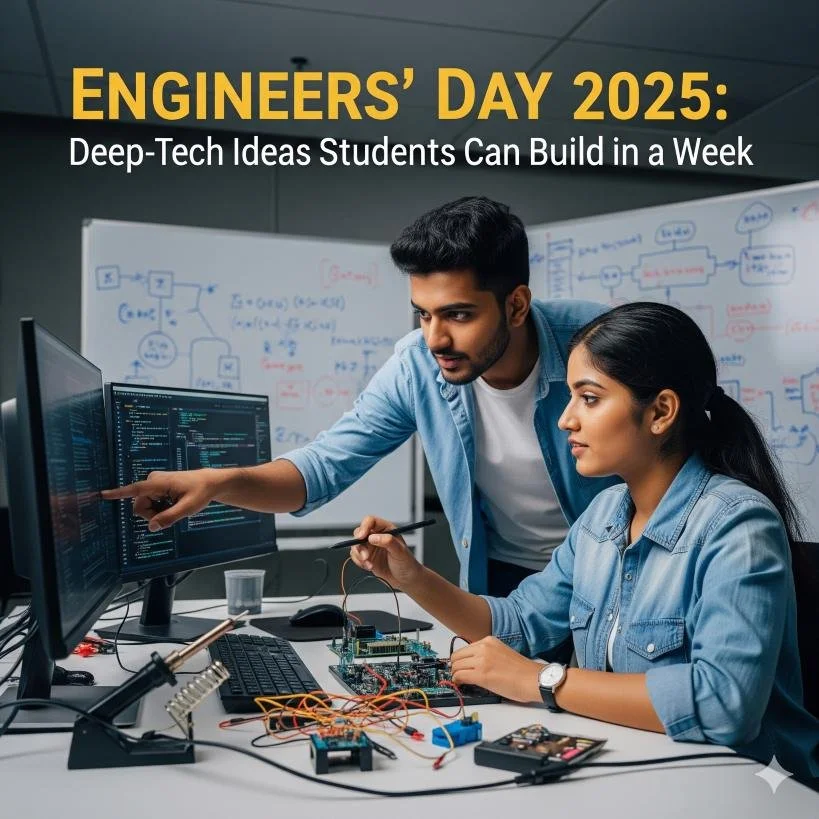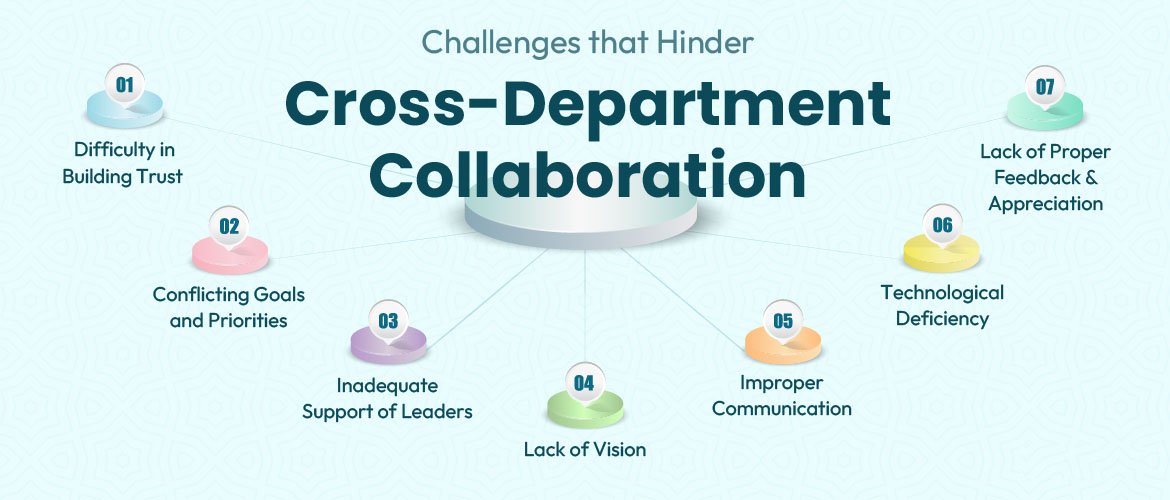
B.Tech in Electrical Engineering
Quick links
Fees
Placement
Scholarship
Overview
The Department of Electrical Engineering primarily focuses on imparting quality education through innovative pedagogy. From conventional laboratories like Electrical Machine Lab and Power Electronics Lab to High Voltage Engineering Lab and innovation lab, the department is committed to preparing students for future challenges in the power sector. The graduates of the department venture out for a wide range of organizations, including reputed MNCs (TCS, Infosys Ltd., etc.), PSUs (PGCIL, SAIL, etc.), Armed Forces, and Indian Engineering Services (IES). The students are also successfully seeking admissions to reputed universities all around the world for further studies and global exposure.
Course Highlights
| Course level | Graduate |
|---|---|
| Duration | 4 Years |
| Average Salary Package | INR 3,75,000 |
| Highest Salary Package | INR 5,00,000 |
| Examination Type | Semester System |
| Program Eligibility | 10+2 or equivalent with a minimum of 45% marks |
| Top Recruiting Organizations | Secure Meters, Alpha-Numero, Pinnacle Infotech, VVDN Technologies Pvt Ltd, Luminous Power Technologies Pvt. Ltd. & many more |
Educational Objectives
Preparation: Electrical Engineering graduates should be competent enough in the practice of Electrical Engineering in industry, research & development, and public service units.
Breadth: To provide students with a solid foundation in mathematical, scientific, and electrical engineering fundamentals required to solve problems related to electrical engineering and to prepare the students for post-graduate programs.
Core Competence: To train students with good scientific aptitude in Electrical broadband so as to comprehend, analyze, design, and create novel products and solutions for the sustainable development of society.
Learning Environment: To motivate the students toward continuous professional development through individual effort and life-long learning for a successful professional career.
Professionalism: To inculcate a professional and ethical attitude, effective communication skills, team spirit, leadership, multidisciplinary approach, and the ability for self-education as well as self-employment amongst the students.
EE Placements
SkillVertex
BYJU'S
Verzeo
InMovidu Technologies
Secure Meters Limited
Pinnacle Infotech SquareYards
Radiant Appliances
Equity Pandit
Congruex Asia
Top Recruiters
Celebal Technology
UltraTech
ISRO
DRDO
IIT Jodhpur
CADC
Tata motors
NBC
All India
CEERI pilani
About EE
+ VISION
To become an eminent destination of technical education and research in the field of Electrical Engineering and to impart knowledge-based value-added education for economic, scientific, and sustainable development of the state as a whole and society in general.
+ MISSION
- To adopt advanced practices in the area of technical education.
- To develop competent faculty, researchers, and professionals who can contribute to sustainable development.
- To improve upon existing facilities for supporting research in cutting edge technologies and strengthening multidisciplinary approach.
- To emerge as a catalyst of synergy between technical education and social sciences so as to inculcate ethical values amongst technocrats.
+ PROGRAM EDUCATIONAL OBJECTIVES (PEOs)
- Preparation: Electrical Engineering graduates should be competent enough in the practice of Electrical Engineering in industry, research & development, and public service units.
- Breadth: To provide students with a solid foundation in mathematical, scientific, and electrical engineering fundamentals required to solve problems related to electrical engineering and to prepare the students for post-graduate programs.
- Core Competence: To train students with good scientific aptitude in Electrical broadband so as to comprehend, analyze, design, and create novel products and solutions for the sustainable development of society.
- Learning Environment: To motivate the students toward continuous professional development through individual effort and life-long learning for a successful professional career.
- Professionalism: To inculcate a professional and ethical attitude, effective communication skills, team spirit, leadership, multidisciplinary approach, and the ability for self-education as well as self-employment amongst the students.
+ PROGRAM SPECIFIC OUTCOMES (PSO)
- PSO1: Demonstrate an ability to analyze, interpret and design the various components of Electric power systems.
- PSO2: Demonstrate an ability to analyze, interpret and design the various components of Electrical control systems.
- PSO3: Demonstrate an ability to analyze, interpret and design the various components of Modern Electric Drives.
- PSO4: Demonstrate an ability to analyze, interpret and design various aspects of Conventional and Non-Conventional Energy Systems for sustainable future.
** PROGRAM OUTCOMES(POs)**
Engineering knowledge: Apply knowledge of Mathematics, Science and Engineering to solve the complex engineering problems in analog and digital electronic systems.
**Problem analysis: **An ability to design electronic circuits, communication systems, conduct experiments, analyze and process data to report results.
Design/development of solutions: An ability to design digital, analog and hybrid systems to meet the specific requirements.
**Conduct investigations of complex problems: ** An ability to investigate the complex problems by methods as appropriate experiments, analysis and interpretation of data and synthesis of the information to reach valid conclusions.
Modern tool usage: An ability to use modern tools to design and analyze Electronics and Communication systems’ performance.
The engineer and society: To apply engineering in global and societal contexts and develop eco-friendly products and solutions with awareness of contemporary issues.
Environment and sustainability: An ability to understand the impact of engineering solutions in a Global, Economic, Environmental, and Societal context.
Individual and Team work: An ability to function effectively as an individual, as a member or leader in diverse teams, and multidisciplinary settings.
**Ethics: ** An ability to understand and demonstrate professional and ethical responsibilities.
Communication: An ability to apply the skills for effective communication in both verbal and written form.
Project management and finance: Work as a member of the project team to find successful design and development solutions to the problems related to electronics and communication systems.
Life-long learning: An ability to clearly understand the value of lifelong learning and self-education.
+ Electrical Engineering Course Outcomes
Electrical Engineering Course Outcomes
+ BRANCH BENEFITS
An electrical engineer designs, tests, implements and repairs electrical systems and equipment. Electrical Engineers work on a wide variety of projects, including communication systems, electrical control systems, power generators, smartphones and vehicles. An electrical engineer performs variety of jobs depending on the types of projects they are associated with:
- Designing new electrical systems
- Developing cost estimates
- Ensuring electrical devices and systems meet safety requirements
- Troubleshooting and resolving issues
- Performing routine maintenance and upgrades
- Assessing the quality of electrical products and systems
- Testing electrical components, products and systems
- Leading research projects
+ CURRICULUM
Jodhpur Institute of Engineering & Technology, Jodhpur has been conferred with Autonomous Status for a period of ten (10) years from the session 2020-2021 to 2029-2030 hence as of now we are following three different course curriculum. The details of the same are as follows:
Career Opportunities
The modern era is heavily dependent on electrical and electronics products. A developing country like India has a good demand for skilled electrical and electronics engineers to fill the positions at crucial manufacturing departments in private and public sector industries. Electronic and electrical engineers are highly employable and can find work in many areas, including the electronics, automotive, IT, gaming, telecoms, manufacturing, power, transport, utilities and construction industries.
Student Outcomes
At the department of Electrical Engineering, JIET, the work culture is designed in such a way that the students develop the following qualities:
Ability to tackle the needs of the modern power system.
Ability to apply knowledge of control systems and electric drives.
Ability to analyze, interpret, and designs Non-Conventional Energy Systems for a sustainable future.
Ability to analyze data, apply technical tools, and get the expected results
Ability to lay a strong foundation of innovative learning and creative ideas
EE Laboratories
Electrical Machine Lab
Electrical Measurement and Instrumentation Lab
Power Electronics and Drives Lab (under the MODROBS scheme of AICTE)
High Voltage Engineering Lab (under the MODROBS scheme of AICTE)
Basic of Electrical and Electronics Labs
Project Lab
Computer Labs
Advanced Solar-PV Lab
Innovation Lab
Prominent Faculty of EE
News Letters
Testimonials
Blogs
FAQs
+ The mission of Jodhpur Institute of Engineering and Technology
- To educate students about technology, new inventions, discoveries, and several other studies with facts
- Aims towards developing moralistic and ethical values of students so that they can come out as the best professionals in their fields after graduating
- To prepare them for their career, more practical insights into the concerned engineering field that the students opt for after completing their 12th
- To give the best education to students and ensure they understand everything about engineering and related subjects.
+ Why JIET for B.Tech in Electrical engineering?
- JIET is one of the best engineering colleges in Rajasthan, offering the highest quality education to students opting for electrical engineering
- It is an autonomous college with a private course curriculum that depends on the current industry status, practices, and skill demand.
- The college is accredited with a grade A from NAAC, proving itself to be one of the best engineering colleges in the western part of India.
- It accepts students from both the country and international regions
- The college has a world-class campus with several facilities one might need during studies
+ Why choose Electrical Engineering?
- Electrical Engineering is one of the core branches with high demand in the market.
- As an Electrical Engineer, you can work in the government and private sectors, having the best options to choose the job suitable for you.
- You will be responsible for electrical work in a project, like designing and mapping the lines, installing high-tension cables and fiber optic cables, building electrical grids and installation, and so on.
- You can also work in the manufacturing industry and design new parts to bring innovation to electrical equipment units and appliances.
- Electrical engineers can easily work on chip or IC development, one of the most demanding industries.
- The knowledge and skills earned from B.Tech shape the future of electrical engineering in the best possible manner.
+ What is the intake of the department?
In Electrical Engineering Department the intake is as follows : B.Tech 120 ,M.Tech 18
+ How many faculty members are there in the department?
There are 15 faculty members in the department .
+ Are there teachers in the department with high experience in teaching sector?
Yes,the department has two research supervisors .Four faculty members are pursuing PhD.
+ Are there teachers in the department with experience of field work?
Yes,there are faculty members in the department with experience of field work.
+ How many students were placed in Electrical Engineering department last year?
Total 31 students out of 56 eligible students got on campus placement.
+ What is the future scope of Electrical Engineering in private sectors?
Electrical Engineering graduate has scope in many industries like renewable, IOT, Electric Vehicles, Robotics etc.
+ Does the department arrange internships/trainings for students?
Yes, the department arranges internships/trainings for students frequently.
+ What are the research facilities available for students in Electrical Engineering department?
Two PhD guides are associated with department .Department is well equipped with updated laboratory and departmental library
+ Are there any scholarship opportunities for Electrical Engineering students?
Yes,there are scholarship opportunities for Electrical Engineering students both in UG as well as PG Courses.
+ Are the laboratories equipped with sufficient instruments for smooth practical exposure?
Yes,laboratories are equipped with sufficient instruments for practical exposure,they are timely upgraded.
+ How enrich is the departmental library of Electrical Engineering department?
Departmental library of the Electrical Engineering department is enriched with Text books,reference books, journals, hand books etc. of reputed publications.
+ Is there any student club in Electrical Engineering department?
Yes the department has its student club which organizes activities and events for the department.
+ Does Electrical Engineering department organize social activities also?
Yes,at times social activities are conducted by human value cell in the department.
+ Do we get frequent information related to the attendance as well as results?
Yes ,the department provide information about the attendance and results to the parents through messages and tutor system.




























